Friday, July 31, 2020
Thursday, July 30, 2020
Wednesday, July 29, 2020
Is dental education enough?
Becoming a dentist is a journey. We spend years learning how to prevent, diagnose and treat oral diseases, in addition to how to meet the continuously changing dental needs and demands of our patients and the public. Dental education is essential because it allows us to gain the necessary knowledge and technical skills to care for our patients. Education fosters the abilities of student dentists and allows them to work closely with faculty in didactic work, sim lab work and in the clinic to learn how to improve patients’ oral health.
However, is this dental education really enough? After dental school, are students competent in providing care to their patients?
Most of the challenges new dentists face have to do with leadership, particularly in practice management. These challenges can include: strategies of team recognition and appreciation, motivating staff with incentive programs, providing regular feedback and performance reviews to improve staff skills, and holding staff meetings to focus on training, customer service and practice enhancement.
Thanks to my experience working in human resources and leadership, I have worked on some of my more “real-life” dental skills such as operations management, relationship building, marketing and strategic planning, communication and delegation, and improving patient experience. The aforementioned skills are easily teachable in a dental school and shouldn’t be limited to acquiring through having a job in another field. Students can learn the basic principles in the same way that they learn dental coursework.
ASDA plays a significant role in providing a platform for dental students to learn and practice leadership skills, which isn’t included in most dental school curricula. Various conferences and leadership opportunities are offered by the ADA for practicing dentists. I wonder why we only allow for these skills to be developed through outside organizations and/or after dental school. Learning these principles early while in school as a part of the curriculum would strengthen the future generations of dentists and leaders of our profession.
Leaders are not born but made, as they are forced to develop in a continuous process of self-study, training and education. If dental schools made leadership learning as much of a focus as crown preps in preclinical fixed courses, dentists would be better prepared to work in diverse environments and strongly lead a team. While organizations such as ASDA and the ADA can provide ample opportunities for leadership development, teaching communication skills can be a bit harder.
As a first-year dental student back in 2004 in Iraq, I remember one of my professors mentioning: “The school introduces you to dentistry, gives you the knowledge, training and skills to get your license and see your first patients. After that, you will begin learning some of the most important skills.” I wondered, “What are the most important skills? Why aren’t we going to be taught them?”
A few years later, I began seeing my first patients in the school clinic. When I entered the clinics for the first time, everyone in my class was stressed out and anxious. However, in the senior clinic, I saw how confident most students were when talking to their patients. As I continued walking, I saw that others in the senior clinic were just as nervous as the students in my class and poorly managing their dentist-patient conversations.
After graduation and residency, I continued to observe how some colleagues have excellent practices and reputations of having great bedside manner, while others are still trying to cope with learning how to communicate with patients and the necessary skills in leading a dental office. After years of professional work, I have understood that it is my experience in jobs that require a combination of many interpersonal skills that have prepared me to communicate with my patients, rather than my dental education.
An article published in British Dental Journal reports that most dentists assume they have the skills to lead a team upon dental school graduation but end up demonstrating otherwise. The article emphasizes that there are many skills that are not formally taught in dental schools that are necessary for success in the modern era of dentistry. Training programs that focus on helping students learn how to successfully build a team, communicate effectively with staff and patients, and enhance their decision-making skills should be considered a mandatory learning experience to ensure that new dentists are prepared as new health care professionals.
Considering that many dental schools excel in training students to be successful clinicians, we must ensure that the importance of also equipping them with proper leadership and interprofessional skills is emphasized. Dental institutions should be required to integrate leadership programs into the curriculum so that graduates can have the right preparation to lead a team and serve their community. New dentists are the heart of the field and there should be no dental school graduate struggling to lead a team or communicate with their patients. Equipped with the proper skills following graduation from dental school, new dentists would have the ability to do so much for the field of dentistry.
~Mohlab Al Sammarraie, Universidad de La Salle Bajío, Mexico ‘19
Tuesday, July 28, 2020
Monday, July 27, 2020
From scripts to smiles: How pharmacy school prepared me for dental school
When most people hear my path to dentistry, they think that I’m a glutton for punishment, yet the truth is, I am actually just a normal girl who, like any 18-year-old at the time, didn’t quite know herself yet.
The story starts with high-school Connie, who knew she was meant to be a provider, knew she wanted to work in health care and that was about it. My parents worked at my state school, where we had one of the best accelerated PharmD programs in the country, so going to pharmacy school became my best financial option, which is how I ended up there — no dreams of becoming a pharmacist, no shadowing or working in a pharmacy either. I simply created the best application to the program that I could and someone in admissions decided 18-year-old me knew what I was doing (I did not).
Fast forward to college — I loved every minute of it. The camaraderie between me and my 100 classmates was like nothing else. We had the best memories while tackling undergrad courses such as organic chemistry and anatomy together. My program was two years of undergrad, combined with four years of the doctoral program, so technically I could have switched out within those first two years. But before I knew it, a white coat was slapped on me, and I suddenly became “Connie, P1 pharmacy student” with no clue how I ended up there.
It didn’t take long to realize that pharmacy was not for me. I enjoyed learning about pathophysiology and different disease states, but the second that anything turned remotely pharmacy with “mechanisms of action” and “therapeutic guidelines,” my brain shut off and I just thought, “Someone else can deal with this.” Then one day I realized, “I think I’m supposed to be that someone.”
After slightly panicking and becoming burnt out working hard in a field I didn’t love, I turned to the one thing I truly loved and the one space where I belonged: arts and crafts. I’m not sure if the dental gods were looking out for me that day, but I remember thinking, “I wish there was a career where I could combine the art of crafting with the science of medicine.” I eventually realized that was dentistry.
And the rest is history. I shadowed my dentist and worked as his assistant while I finished the rest of pharmacy school, taking exams on heart failure and ventricular arrhythmias by day and then rushing to scrub in to cool aesthetic procedures by afternoon. I spent winter break studying for the DAT and summer breaks taking my remaining pre-reqs like physics I and II. I’d like to consider myself the Hannah Montana of pharmacy and dentistry. I loved living that double life. Staying in the pharmacy field was a constant reminder of why I did not fit and what I did not want from a career, which made my dreams of pursuing dentistry all the more passionate.
Now I want to make this clear: I did not leave pharmacy because it is “less than” dentistry or any less clinical either. There is a huge misconception that all pharmacists do is count pills, when that couldn’t be farther from the truth. It is an incredibly clinical field with pharmacists in hospitals, residency programs for intensive care, cardiology and emergency medicine pharmacy, just to name a few options. In some settings, pharmacists now have prescriptive authority and collaborative practice agreements as well.
These are things that those in dentistry are unaware of because the only interaction dentists have with pharmacy is in a brief retail setting and because dental students receive a fraction of the education on therapeutic guidelines as medical or pharmacy students do, so they don’t necessarily see the clinical interventions that pharmacists make.
So what did I learn from pharmacy school that has helped me the most in dental school?
- It never gets better. But you get stronger. Stop thinking your life will be perfect once you “finally get to clinic.” Stop waiting for once you “finally graduate” because the stress and problems will always be there. That’s the only constant in life, and it helps you become better equipped to handle things that come your way. So don’t live for tomorrow; instead, figure out what you can do to become better today.
- Call your parents. Call your friends. Call your classmates. Know when to call anyone because everyone, at some point, needs someone. This isn’t a journey that’s meant to be taken on your own, and it’s the support from those around you that will make this experience that much sweeter.
- The more you learn, the more you realize what you don’t know. I’m sure your DAT score was killer, and you probably were president of some club at some point. Maybe you even have an awesome GPA right now. That’s cool and all, but you have to realize that when you’re a student, you’re confined to the four walls of your clinic. School is a bubble, and you’re so early on in your career (even four years in) that sometimes you don’t even know what you don’t know yet. So seek that mentorship and reach out to people who have been practicing for a while. Make good connections with your faculty members. The people who came before you have so much wisdom to pass down on things that no PowerPoint presentation could ever teach you, and that stuff is gold.
If you’re still reading this, you either have a long attention span or were somehow duped into thinking that I know what I’m talking about, so thank you for that. I’ll close by saying that you, at any point, can change your path. Your story is yours to tell, and I hope you have the courage to tell it the way you want.
~Connie Wang, Tufts ’23
Friday, July 24, 2020
Thursday, July 23, 2020
Wednesday, July 22, 2020
Two NY brothers support COVID-19 relief through baseball card auctions
After returning home to New York from Philadelphia at the start of the COVID-19 pandemic, we were acutely aware of the damage caused by this debilitating virus, given that New York was widely regarded as the “epicenter” of the American coronavirus outbreak. Each day we would read in the morning newspaper about the rapidly increasing numbers of New York COVID-19 cases reported, followed by the seemingly mandatory viewing of the daily televised updates provided by Governor Andrew Cuomo shortly thereafter. Despite our desire to make a difference during those dark times, it was hard not to feel powerless in the face of an event of this magnitude.
However, a spark of inspiration struck one evening in early April, as we saw on Twitter that Boston Red Sox reporter Chris Cotillo was raising funds for a number of charities in the Boston area through baseball card auctions. We’ve been fortunate enough to amass a collection of over 10,000 baseball cards over the years, and we felt there was an avenue to enact positive change at the local level and beyond by auctioning our own cards in support of COVID-19 relief. After reaching out to Chris and planning logistics for several weeks, we launched our Twitter page, @CardsforCovid, at the start of May. The response that followed exceeded our highest expectations.

Over the course of the following month, we conducted nightly auctions to raise funds for causes contributing to those in need during the pandemic, including food banks, charities and hospitals, from New York to California. Along with each card posted on our page, we included an auction starting bid, end time and a charity to which the proceeds from the bidding would be designated. Once the highest bidder was named, they would then send us a copy of their donation receipt, and we would send them the card. Our packages shipped across the country, from as near as the tri-state area to as far as Hawaii.
We found tremendous joy in actively engaging with a community of baseball fans who embodied benevolence and generosity. Throughout the month, we arranged fundraising evenings for the Brigham and Women’s Hospital in Boston and Backpacks For The Street in New York; hosted a one-night grand finale of over 50 auctions; and were even retweeted by Larry the Cable Guy. Each night would throw its own exciting curveballs while the bidding proceeded, so much so that one of our most frequent bidders had commented, “It was like watching live sports.” Ultimately, we managed to raise over $10,700 in support of COVID-19 relief, holding more than 300 auctions for more than 85 different causes.
In reflecting upon this experience, we are profoundly grateful for all involved in making it a reality. From our parents, who were the reason we were able to run this fundraiser in the first place, to all those who supported us through donating and spreading the word about our cause, it was truly remarkable to see a community emerge around assisting others, and even more inspiring to see the work being done across the nation to help during this pandemic. These efforts were being conducted not only by national organizations and renowned hospitals, but also by smaller-scale groups that we came to grow particularly fond of, including Coalition for the Homeless, Open Door Mission and Backpacks For The Street.
What started as a simple idea fostered out of a desire to do good blossomed into an incredibly meaningful and memorable experience that we will never forget. As the world continues to endure this pandemic, we hope that the selfless spirit that permeated throughout this process transcends beyond the bounds of card auctions and into all of our daily lives.
~William Manolarakis, Pennsylvania ’21, and Alexander Manolarakis, Drexel University ’23
Tuesday, July 21, 2020
Monday, July 20, 2020
How nature can improve cognitive function and well-being
You’ve all likely heard the phrase “get some fresh air” to reduce your tension or to help you think more clearly. But did you know this advice is actually based on fact? Nature has been proven to boost cognitive function and mood.
As part of a research study at Rotman Research Institute, University of Michigan and Stanford University in 2012, participants walked for 50 minutes in either nature or an urban environment. Their short-term memories were evaluated before and after the walk. Participants who walked in nature had significant increases in their memory span and in their mood.
Being in nature or looking at a nature scene can significantly lower physiological effects of stress including lowering your heart rate, increasing muscle tone and reducing headaches, according to a 2006 study at Deakin University in Melbourne, Australia. This is important as aspiring dental professionals because we need to think quickly in urgent situations and build patient rapport with a friendly face. If we spend more time outdoors, we probably wouldn’t feel as drained of energy after a full day in clinic or listening to lectures.
If getting outdoors frequently isn’t an option, even looking at a nature scene or being exposed to natural light (think large windows) can reduce stress. A view to the outdoors can reduce our stress, and stress for our future employees and patients. Patients who are able to see nature during their office visit can perceive their appointments as less stressful and more satisfactory.
~Savanna Fonkert, Minnesota ’22
Finish reading this article in the June/July issue of Contour magazine.
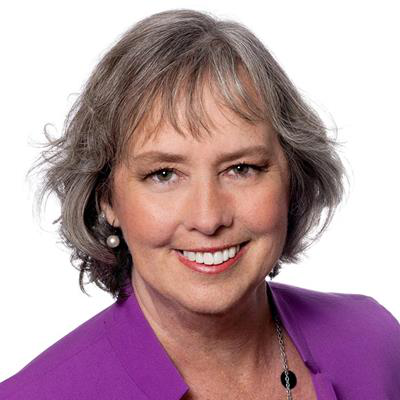 Cyberattacks are up 120% since February, and Debi Carr says that small healthcare practices are prime targets. She discusses why a strong security management plan can help protect a practice from an attack and, more importantly, help it to recover quickly.
Cyberattacks are up 120% since February, and Debi Carr says that small healthcare practices are prime targets. She discusses why a strong security management plan can help protect a practice from an attack and, more importantly, help it to recover quickly.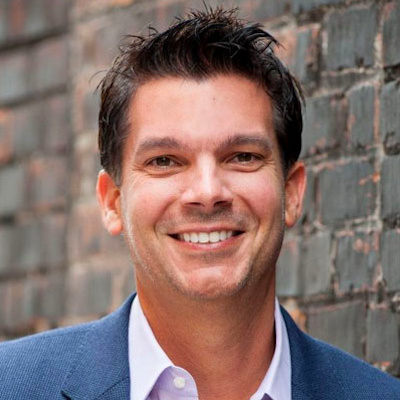 Whether it's porcelain veneers or composite bonding, anterior restorative treatment will make your reputation -- or destroy it, writes Dr. David Rice, clinical editor for DrBicuspid.com. In this installment of his seven deadly sins of smile design series, Dr. Rice focuses on the veneers and the importance of tissue.
Whether it's porcelain veneers or composite bonding, anterior restorative treatment will make your reputation -- or destroy it, writes Dr. David Rice, clinical editor for DrBicuspid.com. In this installment of his seven deadly sins of smile design series, Dr. Rice focuses on the veneers and the importance of tissue. Scientists in Oregon are developing a new 3D-printed technology inspired by Lego toys. The tiny, 3D-printed bricks are designed to help heal broken bones and could one day even lead to lab-made organs for transplantation. They could potentially have an impact on dentistry as well.
Scientists in Oregon are developing a new 3D-printed technology inspired by Lego toys. The tiny, 3D-printed bricks are designed to help heal broken bones and could one day even lead to lab-made organs for transplantation. They could potentially have an impact on dentistry as well.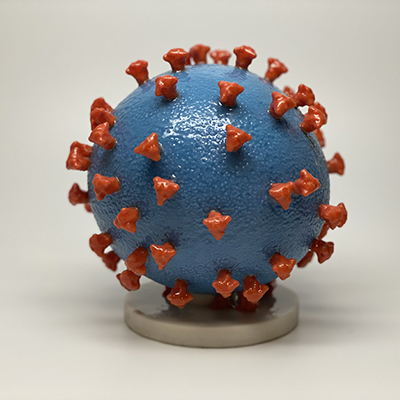 When a COVID-19-positive individual with a high viral load breathes or coughs, it may result in room concentrations ranging from thousands to millions of viral copies per cubic meter, according to a study published on July 27 in JAMA Network Open.
When a COVID-19-positive individual with a high viral load breathes or coughs, it may result in room concentrations ranging from thousands to millions of viral copies per cubic meter, according to a study published on July 27 in JAMA Network Open.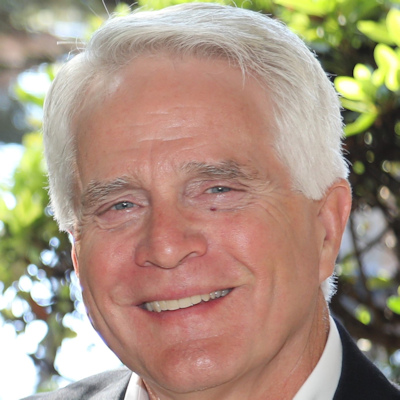 In the human resources world, dental HR expert Tim Twigg says simply that "employees cannot waive their rights under the law." He dives into the concept of an employee signing a COVID-19 liability waiver and what dentists as well as those employees need to know about it.
In the human resources world, dental HR expert Tim Twigg says simply that "employees cannot waive their rights under the law." He dives into the concept of an employee signing a COVID-19 liability waiver and what dentists as well as those employees need to know about it.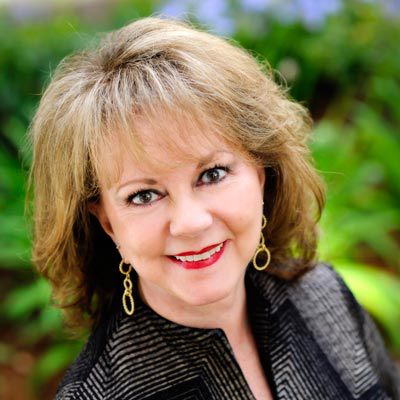 Few people enjoy the hiring process in the dental practice, which is one reason why dentists seem to move through it at lightning speed. Sally McKenzie offers some advice on how to find the right candidate, rather than simply looking to fill the position quickly.
Few people enjoy the hiring process in the dental practice, which is one reason why dentists seem to move through it at lightning speed. Sally McKenzie offers some advice on how to find the right candidate, rather than simply looking to fill the position quickly. With so much talk surrounding COVID-19 and aerosols in the dental practice, Dr. Joe Blaes did some research and discovered a way to prep teeth that not only minimizes aerosols but also reduces the need for an air water syringe in the operatory. He shares his thoughts in this article.
With so much talk surrounding COVID-19 and aerosols in the dental practice, Dr. Joe Blaes did some research and discovered a way to prep teeth that not only minimizes aerosols but also reduces the need for an air water syringe in the operatory. He shares his thoughts in this article.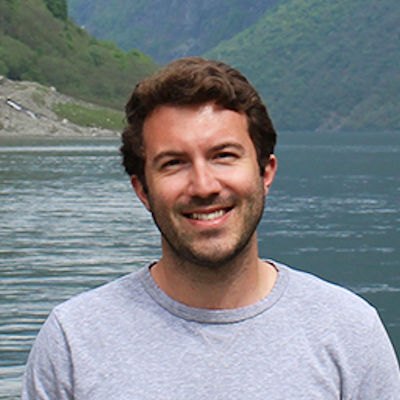 Whether you're hiring a professional marketing company or planning to do most of the marketing for your dental practice yourself, you're going to be spending some money on your efforts to bring in new patients. Justin Bosco offers his thoughts on the questions you should be asking to ensure success.
Whether you're hiring a professional marketing company or planning to do most of the marketing for your dental practice yourself, you're going to be spending some money on your efforts to bring in new patients. Justin Bosco offers his thoughts on the questions you should be asking to ensure success. Failing to maintain good oral hygiene may result in clinically recovered COVID-19 patients continuing to test positive for the novel coronavirus for longer periods of time, according to a study published on July 24 in Special Care in Dentistry.
Failing to maintain good oral hygiene may result in clinically recovered COVID-19 patients continuing to test positive for the novel coronavirus for longer periods of time, according to a study published on July 24 in Special Care in Dentistry.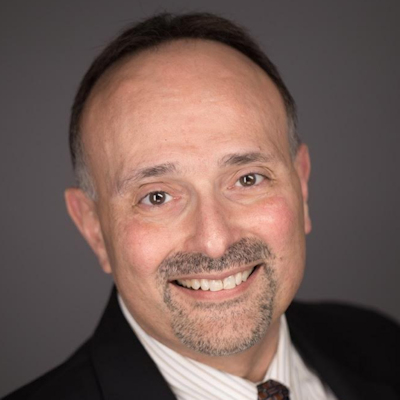 Tom Viola, RPh, explains why dentists may want to know about naloxone and why it is being discussed currently by the U.S. Food and Drug Administration (FDA) in connection with opioid use disorder.
Tom Viola, RPh, explains why dentists may want to know about naloxone and why it is being discussed currently by the U.S. Food and Drug Administration (FDA) in connection with opioid use disorder.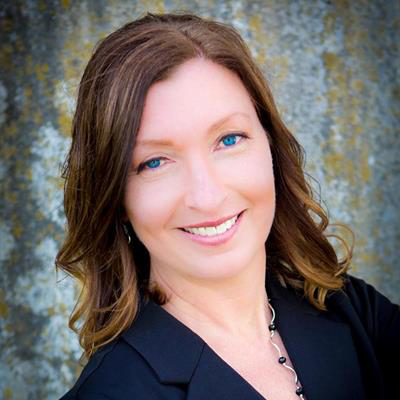 Anxieties and conflict can be a challenge in the best of times, much less during a pandemic. Through the process of identifying areas of emotional intelligence in need of attention and growth, dental team members can create a positive culture to achieve career longevity, writes Jill Meyer-Lippert, RDH.
Anxieties and conflict can be a challenge in the best of times, much less during a pandemic. Through the process of identifying areas of emotional intelligence in need of attention and growth, dental team members can create a positive culture to achieve career longevity, writes Jill Meyer-Lippert, RDH. Atom probe tomography and other techniques revealed that human enamel contains small chemical flaws that may affect the resiliency of the fundamental building blocks of teeth, in a study published on July 2 in Nature.
Atom probe tomography and other techniques revealed that human enamel contains small chemical flaws that may affect the resiliency of the fundamental building blocks of teeth, in a study published on July 2 in Nature.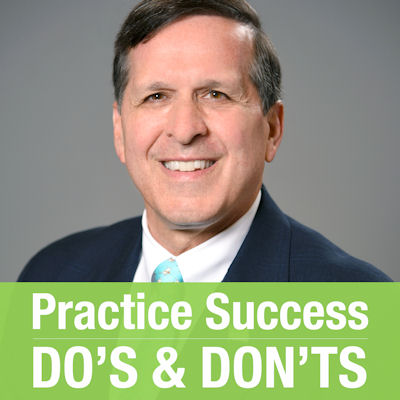 Some leaders are born, but most are made. So there's no excuse not to become an excellent one for your practice. The traits that make a great leader (e.g., confidence, patience, positive attitude, and vision) can all be developed and perfected over time, according to Dr. Roger P. Levin.
Some leaders are born, but most are made. So there's no excuse not to become an excellent one for your practice. The traits that make a great leader (e.g., confidence, patience, positive attitude, and vision) can all be developed and perfected over time, according to Dr. Roger P. Levin.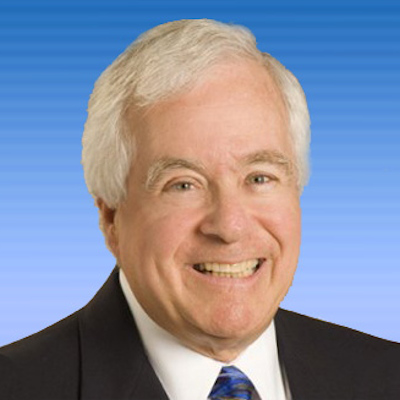 To deal with a loss in patients, which means a loss in revenues, and additional expenses related to infection control methods, dentists and their advisers are planning for the future by developing plans based on past adjustments to revenues and earnings, writes Bruce Bryen, CPA, CVA.
To deal with a loss in patients, which means a loss in revenues, and additional expenses related to infection control methods, dentists and their advisers are planning for the future by developing plans based on past adjustments to revenues and earnings, writes Bruce Bryen, CPA, CVA.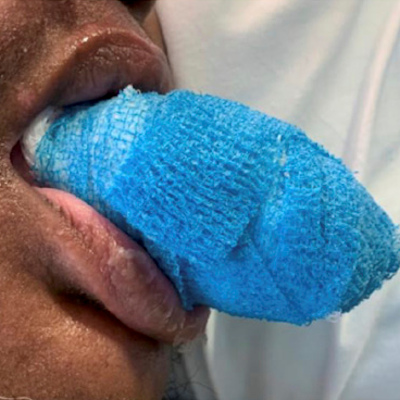 Clinicians used lingual compression to assist a 40-year-old woman who experienced a severely enlarged tongue, almost stretching to her chest, following prone positioning as part of COVID-19 treatment, according to a case report published on July 16 in BMJ Case Reports.
Clinicians used lingual compression to assist a 40-year-old woman who experienced a severely enlarged tongue, almost stretching to her chest, following prone positioning as part of COVID-19 treatment, according to a case report published on July 16 in BMJ Case Reports. Dental patient volume at offices in the U.S. is hovering at an estimated 71% of prepandemic levels, likely indicating that the industry has come close to the end of its recovery, according to new data released on July 21 by the ADA's Health Policy Institute.
Dental patient volume at offices in the U.S. is hovering at an estimated 71% of prepandemic levels, likely indicating that the industry has come close to the end of its recovery, according to new data released on July 21 by the ADA's Health Policy Institute. After a client contracted COVID-19 and it affected his life and his dental practice, Dr. Marc Cooper is sending an urgent message to dentists about their businesses and the steps they should take now in case a similar scenario should occur.
After a client contracted COVID-19 and it affected his life and his dental practice, Dr. Marc Cooper is sending an urgent message to dentists about their businesses and the steps they should take now in case a similar scenario should occur. Nearly 90% of respondents to a new survey by DentalPlans.com said they will go to the dentist despite the ongoing COVID-19 pandemic, as long as safety precautions are in place. More than 4,000 plan members responded to the survey.
Nearly 90% of respondents to a new survey by DentalPlans.com said they will go to the dentist despite the ongoing COVID-19 pandemic, as long as safety precautions are in place. More than 4,000 plan members responded to the survey.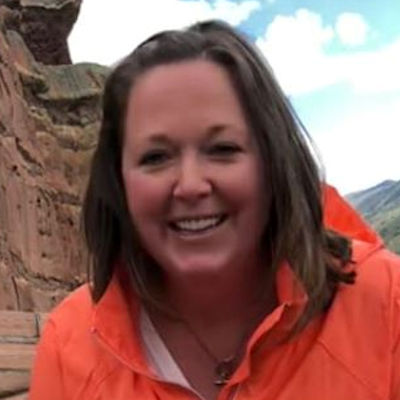 Katie Hess, RDH, believes that using hashtags can and should be a key part of a dental practice's social media strategy. In this article, she gives you an overview of why they're important and what you need to know about them to find more success for your business on social media platforms.
Katie Hess, RDH, believes that using hashtags can and should be a key part of a dental practice's social media strategy. In this article, she gives you an overview of why they're important and what you need to know about them to find more success for your business on social media platforms. A rash inside the mouth may be the newest symptom of SARS-CoV-2 infection, according to a research letter published online July 15 in JAMA Dermatology. The mucocutaneous lesions appeared in patients at a mean of about 12 days after other virus symptoms began.
A rash inside the mouth may be the newest symptom of SARS-CoV-2 infection, according to a research letter published online July 15 in JAMA Dermatology. The mucocutaneous lesions appeared in patients at a mean of about 12 days after other virus symptoms began.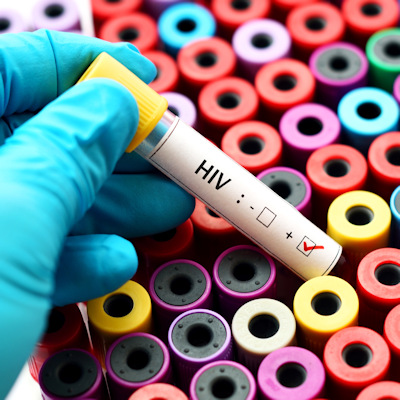 HIV on its own does not increase the risk of children getting caries. Instead, a weakened immune system, stemming from other diseases, affects cavity prevalence, according to a study published on July 2 in Scientific Reports.
HIV on its own does not increase the risk of children getting caries. Instead, a weakened immune system, stemming from other diseases, affects cavity prevalence, according to a study published on July 2 in Scientific Reports.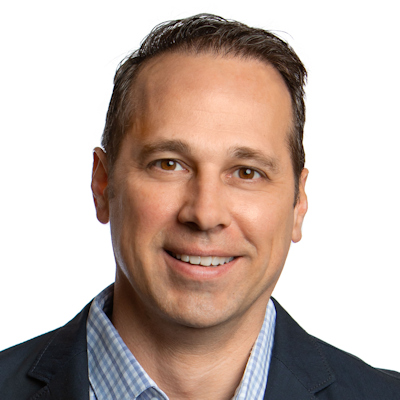 Dr. Bill Dischinger shares an emotional time of despair and hope. He describes how improving someone's smile through the use of clear aligners helped not only with recovery but also with a renewed spirit to help others attempting to overcome similar obstacles.
Dr. Bill Dischinger shares an emotional time of despair and hope. He describes how improving someone's smile through the use of clear aligners helped not only with recovery but also with a renewed spirit to help others attempting to overcome similar obstacles.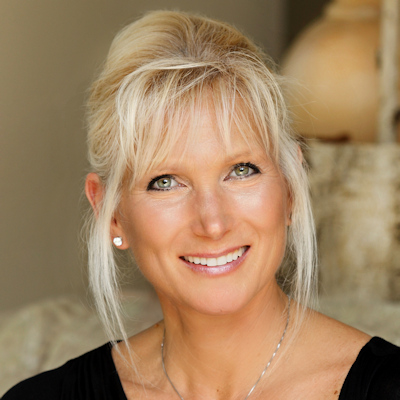 In this podcast, we talk to Dr. Julie Spaniel, who transformed her dental operatory into a clean room to ensure maximum safety in the battle against COVID-19. Dr. Spaniel tells us what she did, why she did it, and the reactions she has received from her patients and team members.
In this podcast, we talk to Dr. Julie Spaniel, who transformed her dental operatory into a clean room to ensure maximum safety in the battle against COVID-19. Dr. Spaniel tells us what she did, why she did it, and the reactions she has received from her patients and team members. The tongue coatings of people with chronic heart failure differ from those in people who don't have the progressive condition, according to a recent presentation at the online event Heart Failure Association (HFA) Discoveries.
The tongue coatings of people with chronic heart failure differ from those in people who don't have the progressive condition, according to a recent presentation at the online event Heart Failure Association (HFA) Discoveries.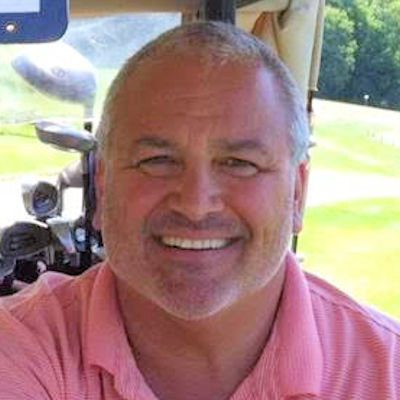 With his 33 years of experience in the operatory, Dr. Dennis Pezzolesi has seen many different kinds of leadership techniques. In this article, he dives into five individual styles of leadership and asks readers to determine which one represents them -- and if that's good for their practices.
With his 33 years of experience in the operatory, Dr. Dennis Pezzolesi has seen many different kinds of leadership techniques. In this article, he dives into five individual styles of leadership and asks readers to determine which one represents them -- and if that's good for their practices.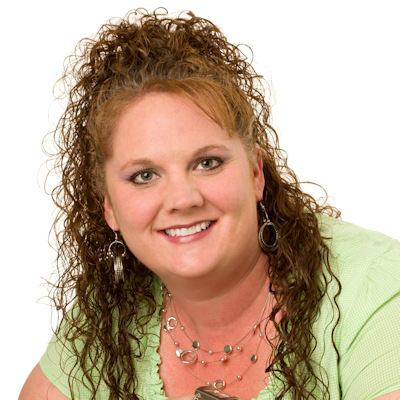 Within the Curve Hero practice management software, how can you set up recare to ensure the process works and updates correctly for the patient? Curve trainer Tracey Thompson offers some tips and advice.
Within the Curve Hero practice management software, how can you set up recare to ensure the process works and updates correctly for the patient? Curve trainer Tracey Thompson offers some tips and advice.